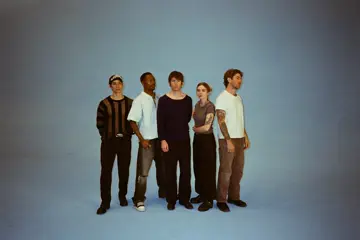x-men: apocalypse

It’s the end of the world as we know it, and pixels are flying everywhere. The modern tentpole picture has become a place where CGI shit swirls around and whole cities and/or civilisations are wiped out, whilst people in silly costumes fight and/or crack wise. And X-Men: Apocalypse feels like this idea reduced to utter formula. There’s nothing offensive or awful about it, to the point that you almost wish there was. Confronted with mass pixel-whooshing this boring, you start to yearn for the hateful, loathsome idiocy of Michael Bay; which, my friends, may be the ultimate critical damnation.
Here, director Bryan Singer —a veteran, now, of four X-Men movies— takes two of the best actors of this generation, Michael Fassbender and Oscar Isaac, and sticks them in front of a green-screen. There, they gurn and grimace, holding out their wobbly hands, whilst pixels are flung this way and that. It’s a movie in which actors are mere marionettes, its cinematic world built —and, then, of course, destroyed— by the Gods of the blockbuster: CGI technicians.
Isaac, looking like a member of the Blue Man Group dressed in Predator cosplay, is an Egyptian God/mutant who, having reawoken from five thousand years of slumber, wants to destroy the world. I guess this is a given when your villain’s name is Apocalypse. To say there’s not much to his character would be to imply that there was much to any character herein.
Take Olivia Munn, who is quickly employed as one of Isaac’s appointed henchman. She’s in the film a lot, but has no dialogue, no motivation, no real purpose; what’s most important is that she is wearing false eyelashes and has a freshly-waxed bikini line. The internet tells me her comic-book handle is Psylocke, her civilian name Elizabeth Braddock, but no one actually mentions this in the film. As always, X-Men movies are populated by countless comic-book caricatures, who’re flung on screen with little warning or meaning, there more for easy fan-service than narrative demands. There’s so many parallel storylines that, inevitably, some get left hanging; consigned to C-story strands that’re sidelined for long, you-forget-about-them stretches. Simon Kinberg’s screenplay treats Jennifer Lawrence, close to the biggest star on the planet, as after-thought; J-Law, in turn, delivering a performance of pure cheque-cashing contractual obligation.
Don't miss a beat with our FREE daily newsletter
This (confusing) story is set in 1983, the ’70s kitsch of 2014’s X-Men: Days Of Future Past being swapped out for cans of TAB, Ms. Pac-Man, The Eurhythmics, and plentiful Cold War/Iron Curtain kitsch etc. There’s a scene in which a gaggle of young mutants —Sansa Stark, the kid from Mud, Kodi Smith-McPhee doing a German accent— go, like all good ’80s teens, off to the mall. There, we see them coming out of Return Of The Jedi. “At least we can all admit, the third one is always the worst,” says Sansa. It’s obviously some kind of self-aware joke, but it’s not clear whether it’s mocking Brett Ratner’s awful X-Men: The Last Stand (2006), or itself; this the third film since 2011’s X-Men: First Class retconned the whole magilla by starting it again in the 1960s.
It’s, actually, the sixth X-Men film, ninth if we include the Wolverine and Deadpool spin-offs. And there’s more to come: the obligatory post-credits teaser alluding to 2017’s imminent Wolverine and Gambit films, with another Deadpool and yet another X-Men movie (set in the ’90s! Bring on the grunge and flannel) on the horizon. If that’s not enough brand-management, there’s even a cameo from Hugh Jackman, who shows up, furiously murders everyone for 10 minutes, then runs off into the woods.
And, if you like murder, there’s plenty to be had in Apocalypse. Look at that title! At least when Jackman is doing the killing, there’s blood sprays, and near-grindhousey air of depraved comedy. Mostly, though, people are noiselessly murdered; calmly beheaded by CGI whispers or lost in the tumult of an entire city being torn apart.
The central dramatic concern of the film is whether Isaac will raze the planet, destroying all of humanity. And, well, non-spoiler alert: he doesn’t. Surprise surprise, evil doesn’t triumph over good. There’s no tension, no suspense, no intrigue in its brink-of-annihilation finale. Just rampant product-placement, Tye Sheridan removing his laser-proof Rayban-branded goggles like the deal-with-it meme in reverse, and James McAvoy in a natty lilac v-neck. For a fleeting moment, there’s a climactic fistfight between Isaac and McAvoy inside J-Mac’s mind that, were any real artistry invested in it, could be amazing.
But there’s no artistry invested in anything herein. There’s, instead, endless weightless, meaningless spectacle-making; global landmarks atomised, floated aloft, and moved around by the invisible hand of the CGI God. If you’ve ever wanted to see the entire skyline of modern Cairo turned to sand, then spirited through the air and reassembled as a giant metal pyramid, then, boy, is Apocalypse the film for you. But for anyone interested in, say, story, or character, or cinema as an artform, then 144 minutes of this dreck may make you feel like the world actually is ending.












